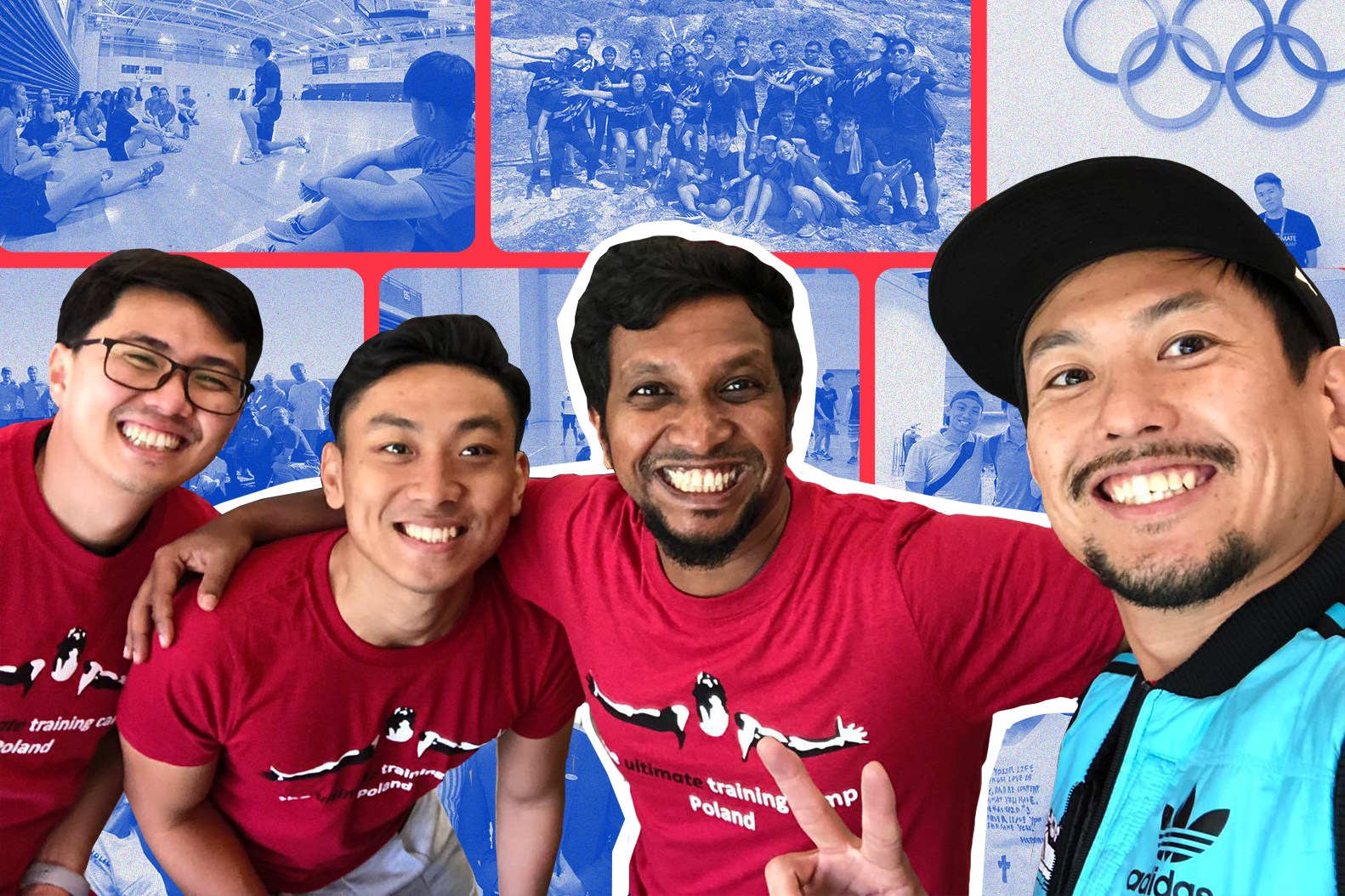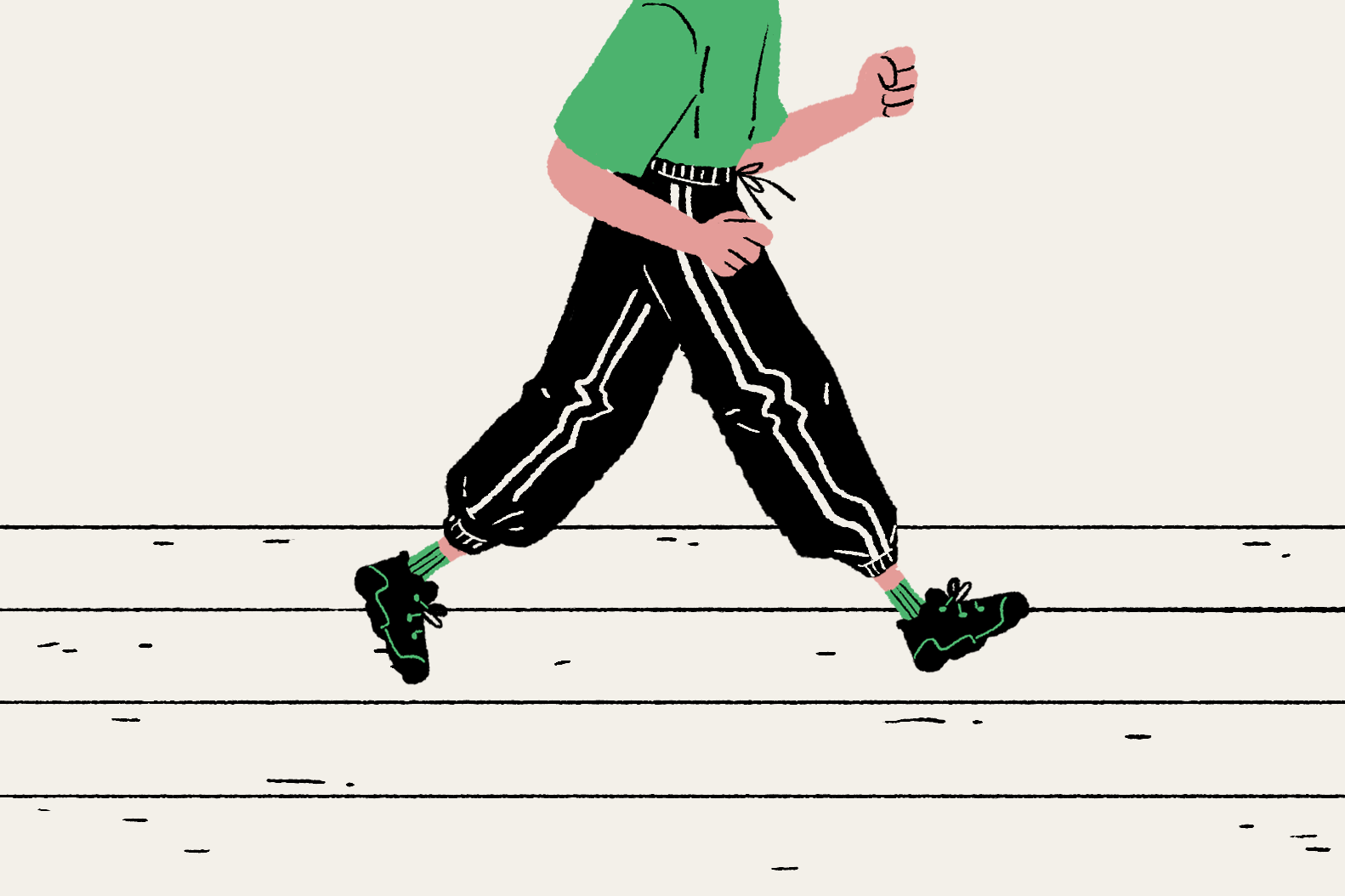In 2009, my Bible study group and I played football every Wednesday with a motley crew of non-believing polytechnic students, to the point that we signed up for an eight-month-long sporting league together.
After the season ended, we had a barbecue celebration for everyone in the team and gave out copies of a Japanese animated Bible.
Almost everyone took a copy and the next day, a teammate said: “Coach, I am done reading already. What’s next?”
The year after, as a Cru staff, I put together a sports competition in light of the 2010 Youth Olympic Games being hosted in Singapore.
Despite having no prior experience and no reference point within our organisation, we received 400 participants — mostly non-Christian — to whom we got to preach the gospel in words and action.
A senior staff member even commented that they had never seen so many non-believers attend a Cru event.
There was clearly much good that a sports-focused ministry could help achieve, and I believed strongly in the need for a separate space within Cru to be carved out for such a ministry.
After two years of persuading my leaders to start a specialised sports ministry, Athletes in Action (AIA) — known simply at that point as the sports ministry — was finally launched on March 1, 2012.
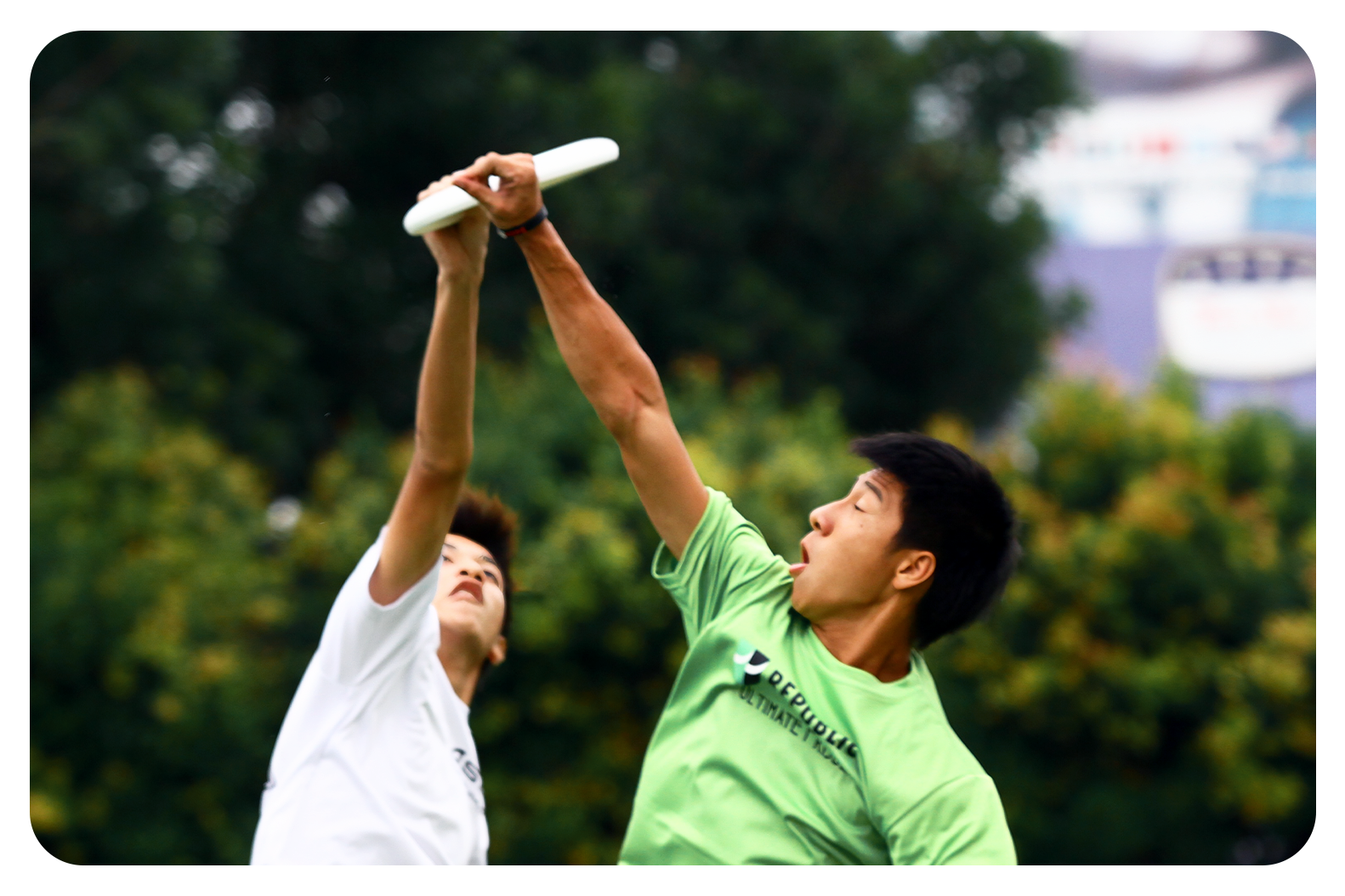
AIA was formed out of the belief that there was much potential for Christian ministry to be integrated with the world of sports. After all, we had seen glimpses of what such a ministry could look like.
Yet, despite the strong vision that I had for AIA, as I sat at my desk on Day 1 as the only staff member of the newly minted ministry, I had absolutely no clue what to do.
Now that it had finally come to fruition, why did I have no plan in mind? Were my desires misdirected? Had I heard wrongly from God?
I fought so hard to start the sports ministry and this is it?
Sitting in the office, clueless and doubtful, I recalled God’s words to Moses in Exodus 4:2: “What is that in your hand?”
Moses had been shepherding a flock when he was called by God, and all he had in his hand at that moment — a humble staff — became an instrument for God’s glory and Moses’ ministry.
At that moment, I felt God encouraging me to simply do what I could, and He would show up.
What could I do?
At that point, I had a few years of experience as a campus staff worker with Cru at Nanyang Polytechnic, and something I could do was to get connected with people on campus.
As the season for clubs and societies to recruit freshmen was around the corner, I asked the junior who had taken over the ministry from me to include a question about sports interest in the recruitment form.
Out of all the freshmen I called who had indicated an interest in sports, only one agreed to be part of our new sports ministry.
While he was not necessarily a committed Christian at that point, he was excited about the idea of a sports gathering. Little did he know that he was our first recruit.
To be honest, when you have got numbers on your side, it is much easier to feel like your work is successful, significant or fruitful…
A couple of weeks later, Wen Quan and his friend James met me at the school canteen at 5pm. They must have expected a large venue buzzing with athletes, but instead it was just them and me.
“Congrats, you are the first,” I joked, to their shock.
Then I sat with them and shared about what I felt was God’s simple yet great desire for the ministry: to make disciples of all the nations, as the Great Commission had instructed us to do.
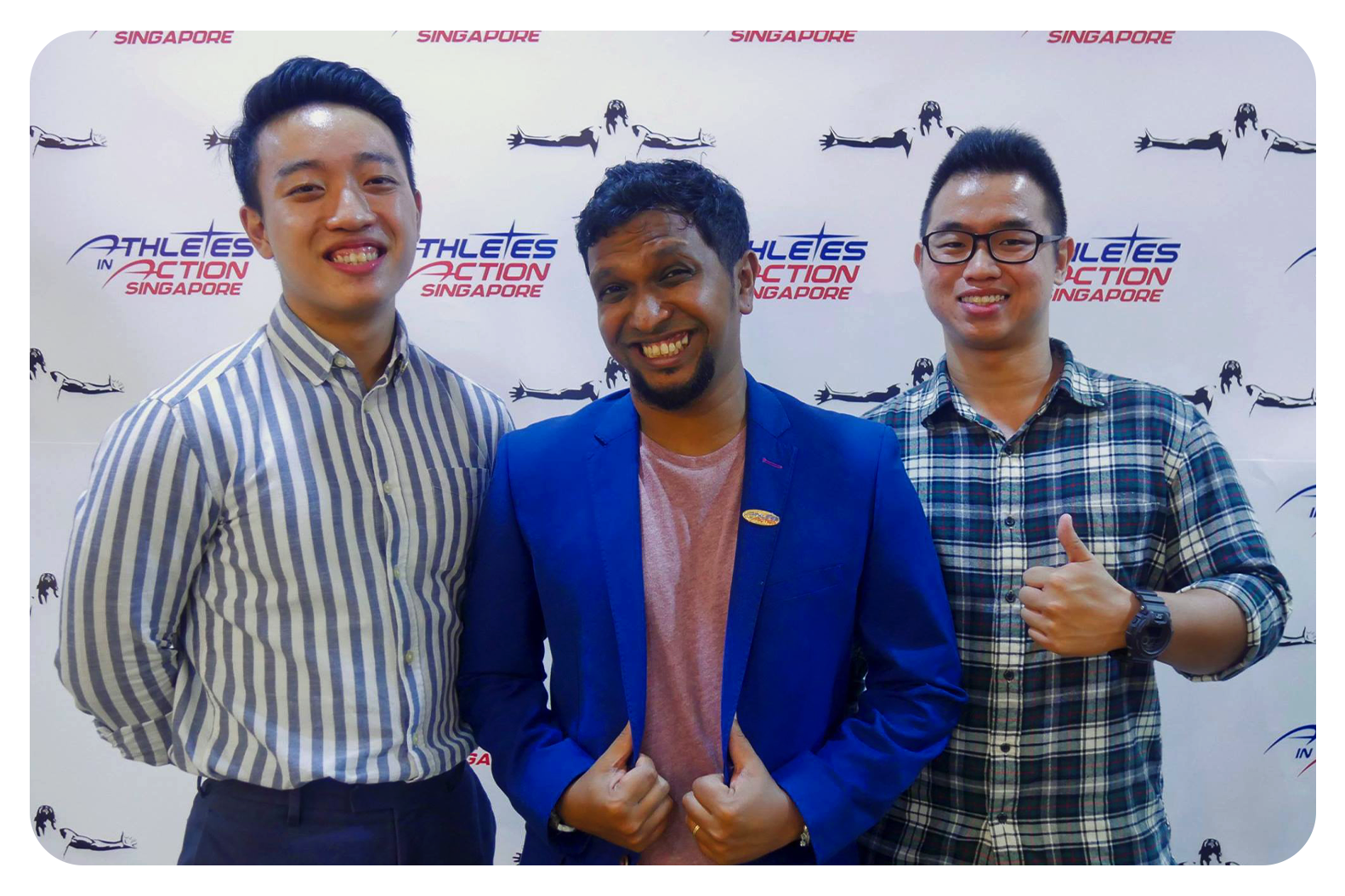
That was how AIA started — with me and just two athletes. For a whole year, it was only just three of us.
While I often ate and spent time with them, I could not help but occasionally feel some discontentment. I fought so hard to start the sports ministry and this is it?
Before this, I was leading a campus ministry with 60 students and heading multiple discipleship groups; now, the scope of my focus was reduced to just two boys.
To be honest, when you have got numbers on your side, it is much easier to feel like your work is successful, significant or fruitful; with just two boys week after week, it was sometimes hard to see the end goal.
With the Spirit’s prompting, however, I told myself that I would spend at least eight years giving my best to the ministry and labouring hard for it, so that AIA may grow into whatever God had planned for it.
Growing from two to a tribe
That first year, we decided to host a sports competition again, given the successful run two years earlier in conjunction with the Youth Olympic Games.
We gathered everyone for the event, which we named the Edge Games, and shared the gospel through it, just like the last time.
Yet I could not help but feel slightly unsettled in my heart about the sports-related outreach campaign.
There were other ministries in Singapore already doing this, with far more experience than we had.
Bringing God’s Word to people through sports was not a new idea.
So what was our reason for existing? What was the gap we filled, the part we played in the larger picture?
And then it hit me: While many ministered through sports, there was not yet a group in Singapore that specially ministered to the sporting world.
We tend to look at (the Great Commission) from a geographical point of view, but what about the groups within our spaces?
At that time, to my knowledge, many churches did not know how to journey with an athlete. Not one local ministry I knew catered to coaches and athletes.
The Great Commission tells us to make disciples of all nations — of every tribe and tongue, every group of people — and the focus tends to be on the less-reached.
We tend to look at this from a geographical point of view, but what about the groups within our spaces?
What makes a tribe a tribe? Beyond where they live, it is also about what they have in common.
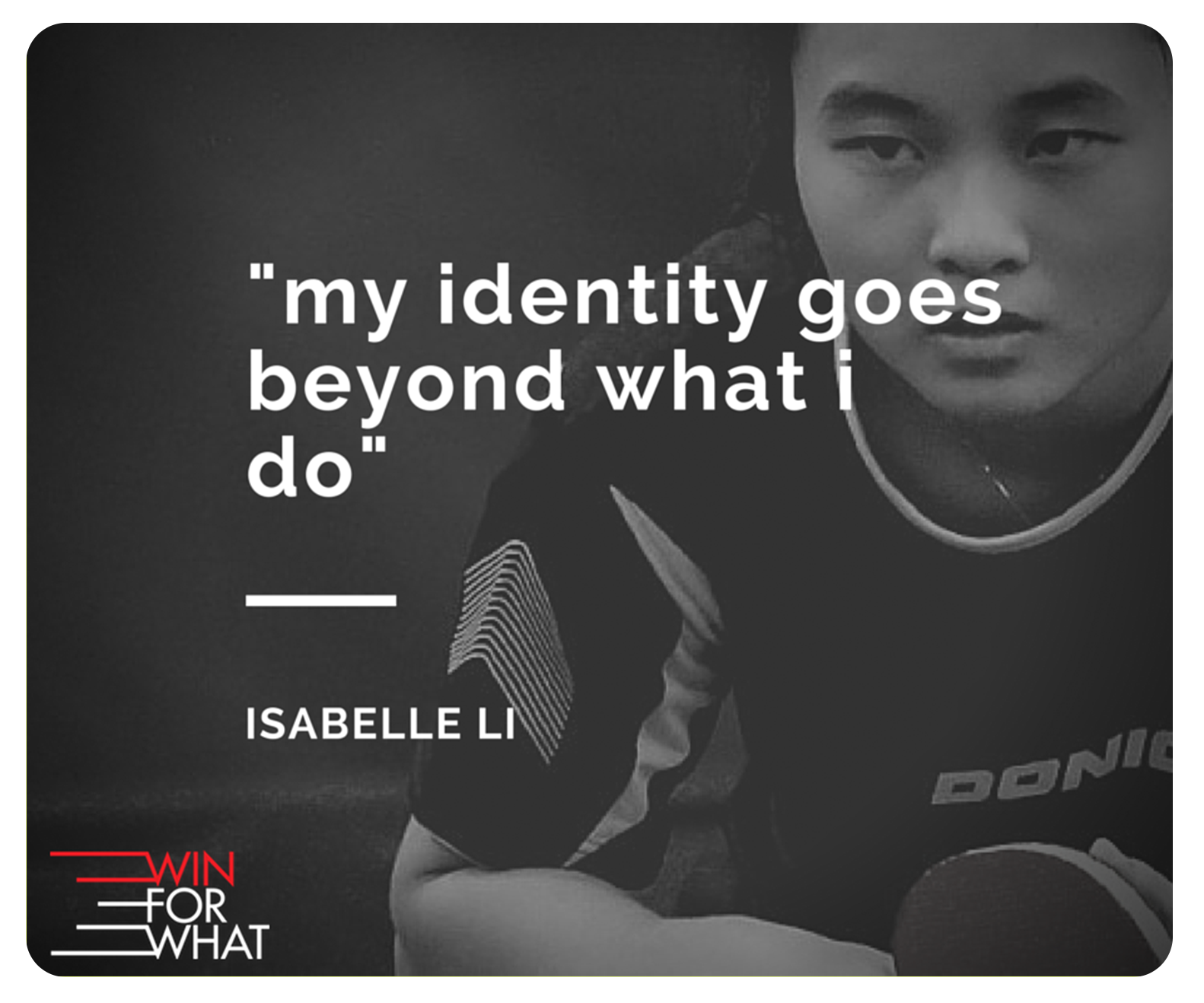
Athletes are a remarkable group. Many train up to 10 times a week. All their time is spent on their sport, and the way they lead their lives revolves around it.
They speak the same language, metaphorically speaking. They often have similar traits and goals.
And yet many athletes struggle with a sense of identity apart from their career, focus and accomplishments.
Some athletes even feel cornered to make a decision between God and sports at times.
Society tends to see sports as a distraction or a side hobby at best — my parents did, for instance. To some believers, having conflicting schedules on Sunday comes across as a lack of commitment to God.
But if God knit us together and knew us even before we were formed, and gave us our talents and every good desire, why do we make sportspeople feel bad about their desire to develop their gifts and abilities?
As the Church, why do we not support them instead and celebrate them as they flourish into the best version of themselves?
Athletes have an incredible amount of talent, skill, drive and self-discipline, plus immense potential to reach the nations.
What might the world look like if every influential athlete used their platform to display Christ’s work in them?
With this realisation, it felt like our ministry suddenly gained direction and a renewed sense of purpose.
Seeing Christ in Ultimate Training Camp
In 2013, as I wondered how we might reach this special group, I heard of a camp hosted by the AIA arm in Colorado called the Ultimate Training Camp (UTC).
A month later, I was on a plane to learn how to conduct the camp, determined to replicate it in Singapore.
I was floored by the way UTC was conducted: how physically demanding and sports-focused it was, and yet how Jesus moved through the camp and impacted athletes’ lives through it.
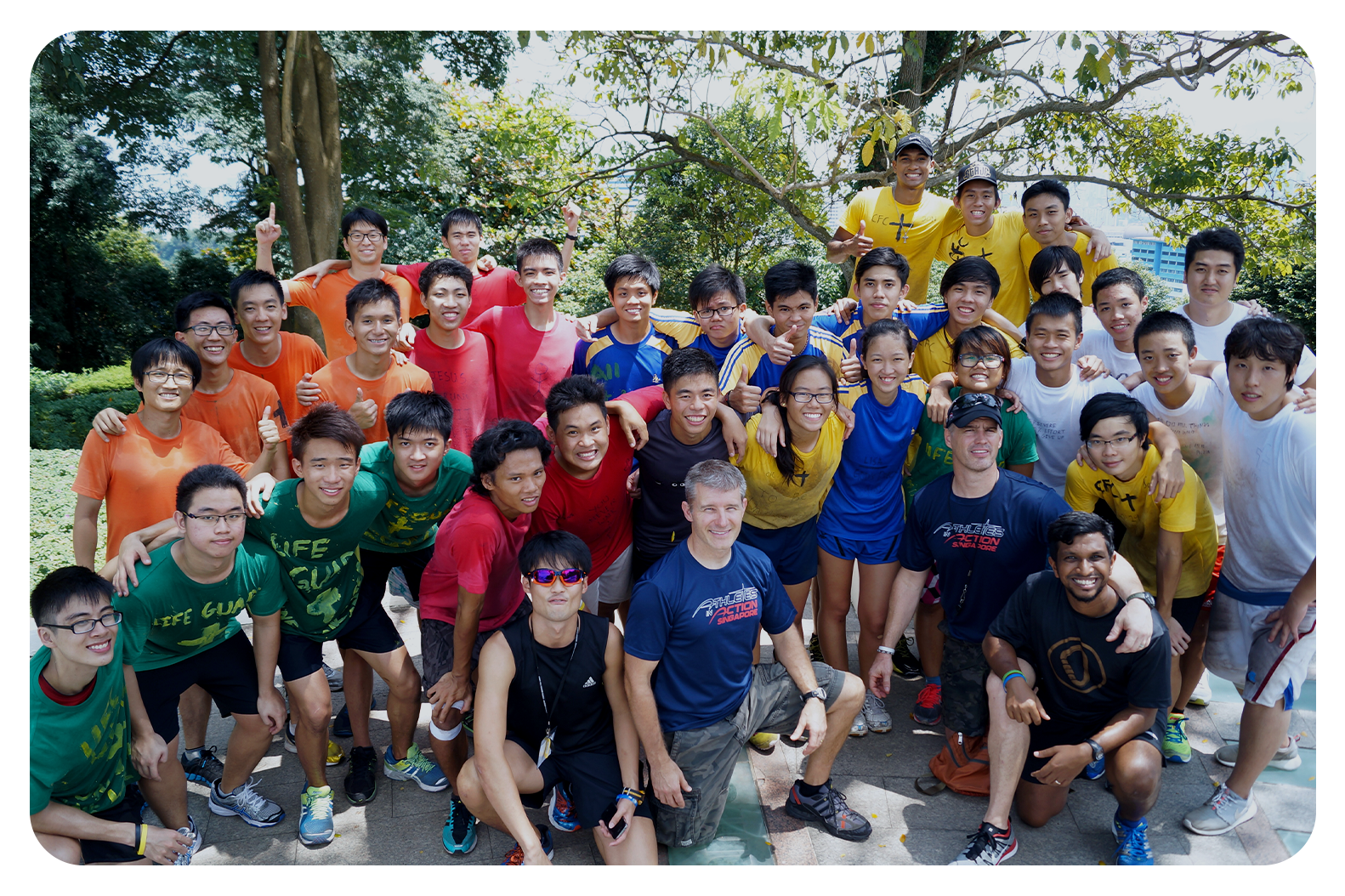
When I returned, my new AIA colleague-in-training, Jia Xian, and I got to work: two guys organising and running a five-day sports camp from scratch, a massive feat with an incredible amount of logistics.
That year, 36 people attended the camp, a mix of Christians and non-Christians, and all a part of the sporting scene in some capacity.
One of the campers even received Christ while doing push-ups.
Knowing that his limit was about 20, he had said to himself before he began: “God, if you are the God they say you are, help me to surpass it.”
He hit 80 push-ups, acknowledging Christ at the 70-push-up mark.
By the end of the camp, we were convinced that God was working through this event and continued to hold UTC annually, with more stories of transformation, revelation and conversion as the years went by.
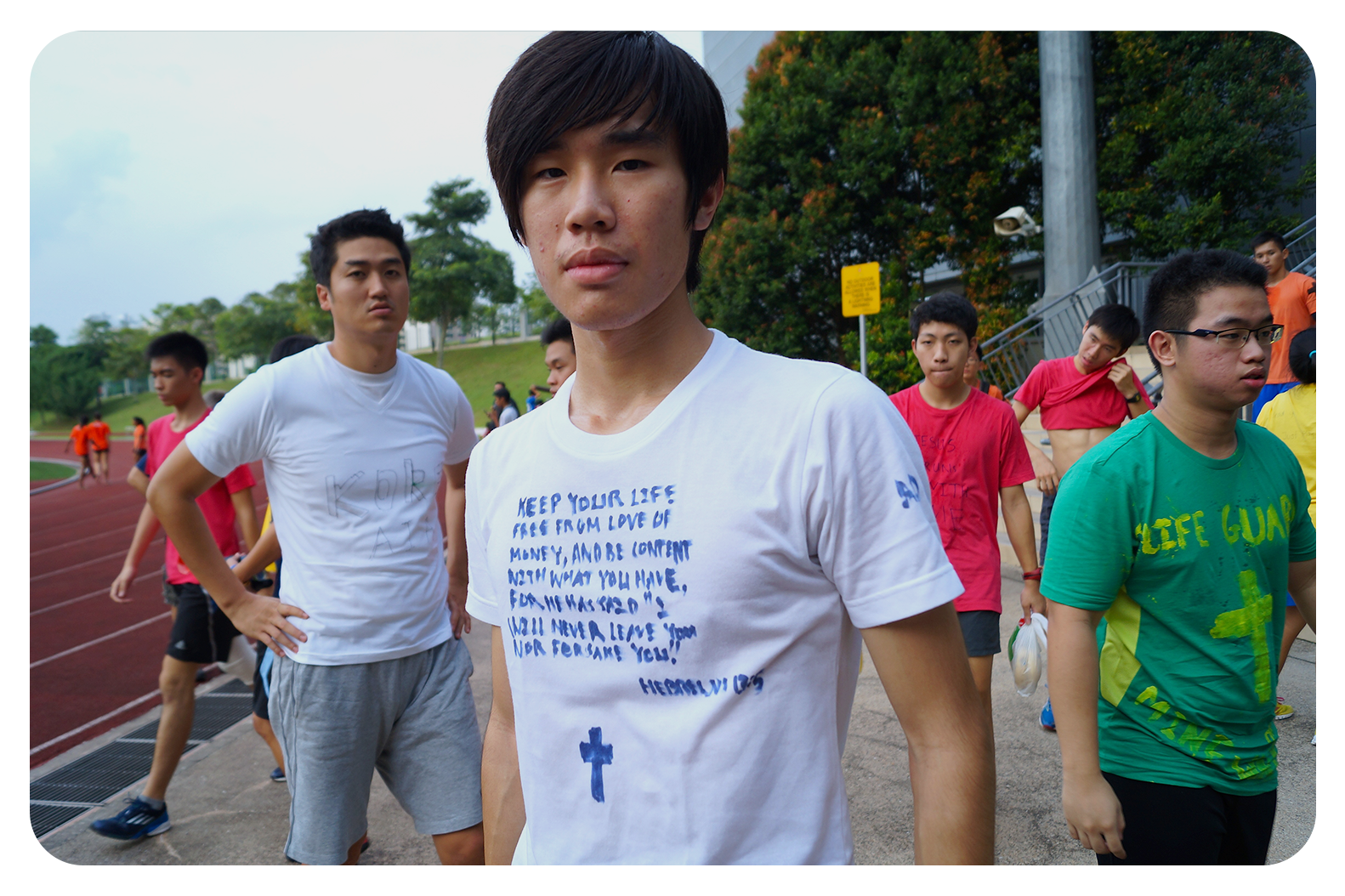
Building up national athletes
When our ministry received the direction to minister to sports rather than through sports, everything seemed to fall into place.
Yet, reaching out to professional athletes at large-scale events such as regional or international games was not on our minds at all — we only saw ourselves as ministering to campus athletes, where we had connections and any possibility of influencing.
What would ever lead our small, almost insignificant ministry to do anything meaningful for national athletes? What could we ever offer them?
Until one day when a colleague offered to connect us with a national sprinter.
“Okay lor,” we shrugged, doubtful that he would be interested in us or that it would get us anywhere, but mindful that any offer was an opportunity.
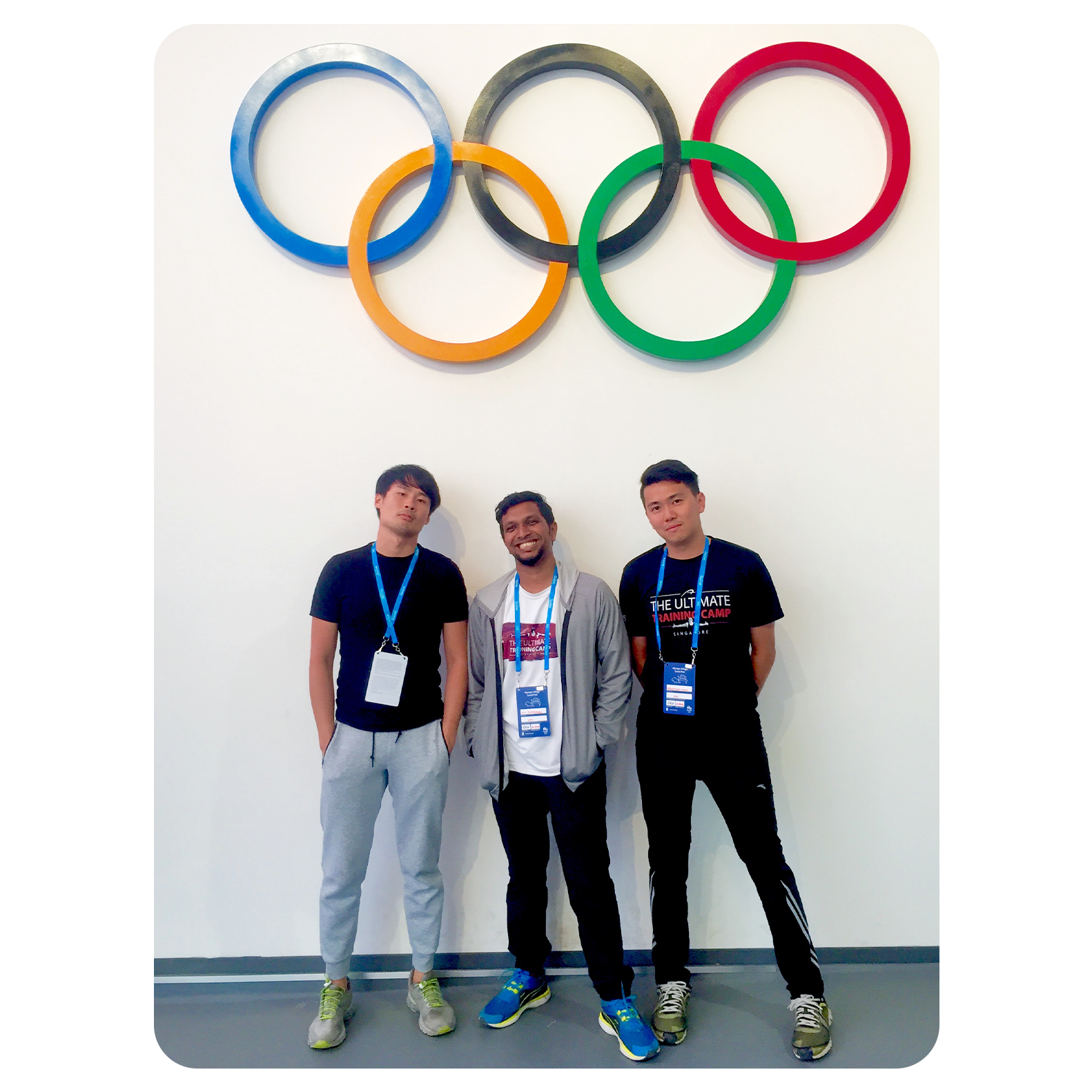
Jia Xian and I thus met Calvin Kang —a multi-medallist and Singapore’s fastest runner at that time — for ayam penyet.
To be honest, we were quite surprised that he was eating fried chicken, to which he responded: “Never mind lah, I’ll burn it off later.”
Calvin was part of a prayer group that met every two weeks at a coach’s house, and he invited us to the next meeting.
We were honoured to be invited to such a gathering and surprised to find an acquaintance there: Hannah Lee, a national discus thrower from Nanyang Polytechnic, where our ministry was based.
That night, we went from hardly knowing any national athletes to being connected to four, plus one coach. For some inexplicable reason, they also made us the spiritual leaders of the group.
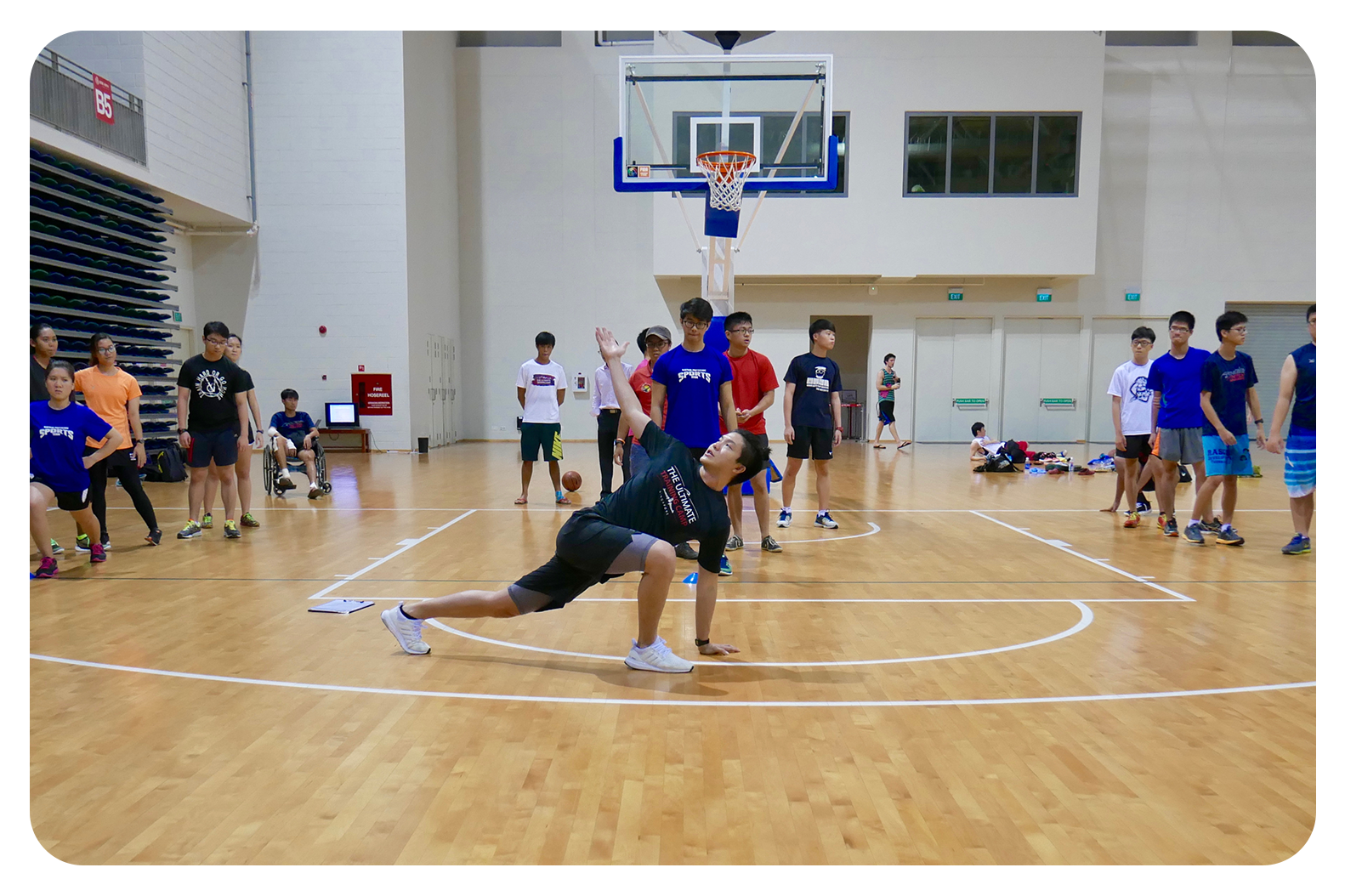
When we discovered that the athletes were going for the Southeast Asian Games (SEA Games) — both as competitors and as competitors-to-be — it suddenly made sense for us to be there as well.
We quickly secured our tickets and told our friends and family to get us in touch with any Christian national athletes they knew. All at once, people kept coming with contacts: an archer, a rugby player, you name it…
Soon it became clear that there was a need for a ministry to serve this community — a need we were in the right place and time to fill. But how?
We attended our first SEA Games with no plan but to pray. Every day, we woke up, asked God to reveal to us what He wanted us to do, and simply went wherever our national athletes were.
We focused on those who had been referred to us, with whom we had already made some acquaintance. All we did was show up every day, wherever they were competing.
Slowly, the athletes came to see us as a familiar face, a group that cared for them and made their interests our own. Some of them even said that they wanted to be a part of AIA when they returned.
Once the SEA Games were done, four of them formed the first national athletes’ discipleship group. They all happened to be studying in the same university at that time, which also allowed us to expand our campus reach.
And it all happened because we met Calvin for ayam penyet and kept showing up.
Going beyond mind and body
Having refined AIA’s focus, we had to think hard about what it meant to minister to athletes — and what it meant to be one.
The sports scene often focuses just on the body and mind, but few engage in conversations about an athlete’s inner life, identity, character and motivations.
Our belief is that every athlete should engage their mind, body and spirit to become their best selves as athletes…
In 2014, we met a strength and conditioning coach, Julian Lim, who accepted our request to co-conduct a Total Athlete Workshop.
While he conducted talks about bodily strength, we would encourage athletes to give thought to what lies deeper within: to gain clarity on their motivation for pursuing their sport and their goals, and to hone the inner fire that would set them apart as athletes and help them reach their fullest potential.
The following year, we also got acquainted with Christian sports psychologist Joshua Chua. Now that we had the physical, spiritual and mental dimensions, we decided to name the programme Total Athlete Academy (TAA).
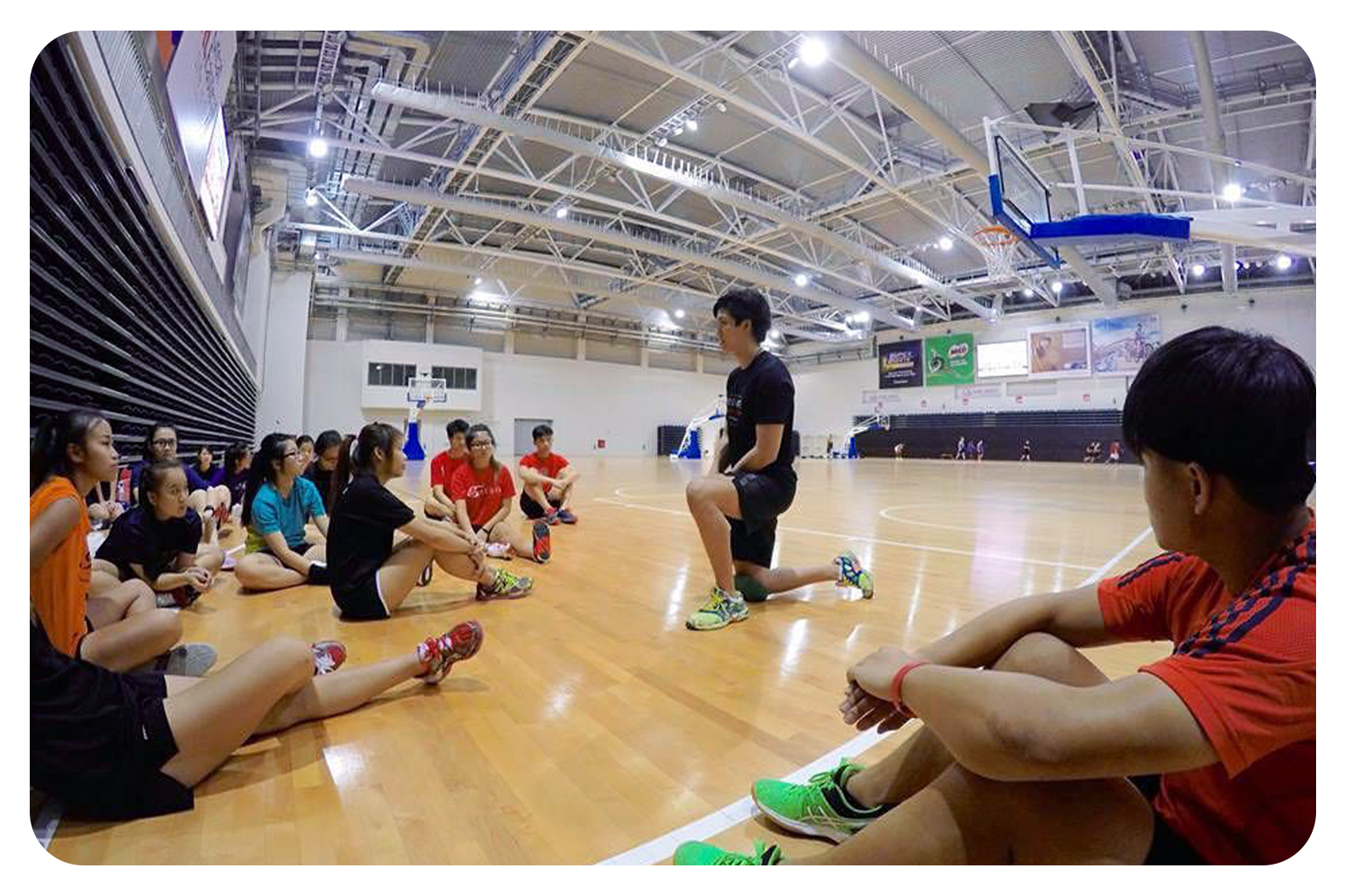
TAA is a secular programme that seeks less to evangelise, and more to get to know athletes authentically and help them develop holistically.
Our focus was on campus athletes, who did not have the same access to the high-calibre professionals that national athletes did, yet who were equally in need of total development.
Our belief is that every athlete should engage their mind, body and spirit to become their best selves as athletes, and we were delighted to have the opportunity to expand this programme beyond Singapore’s shores.
Reaching the nations
In the next few years, God showed us the profoundness of His Church — how, despite its vastness, we are all deeply connected as members of one body, transcending national and cultural boundaries as citizens of His kingdom with a common cause.
In 2017, the AIA team in Korea asked if we could train two of their staff members and one key athlete. We were completely taken aback by this because AIA Korea had been established for a much longer time, and was more like a big brother to us.
Humbled, uncertain and excited all at once, we readily agreed to host them for 10 days.
Besides participating in our annual UTC, they also accompanied us as we served on campus, visited our athletes, and celebrated the milestones and achievements of those within our ministry. Our Korean counterparts left with renewed vision and excitement, and a renewed sense of possibility.
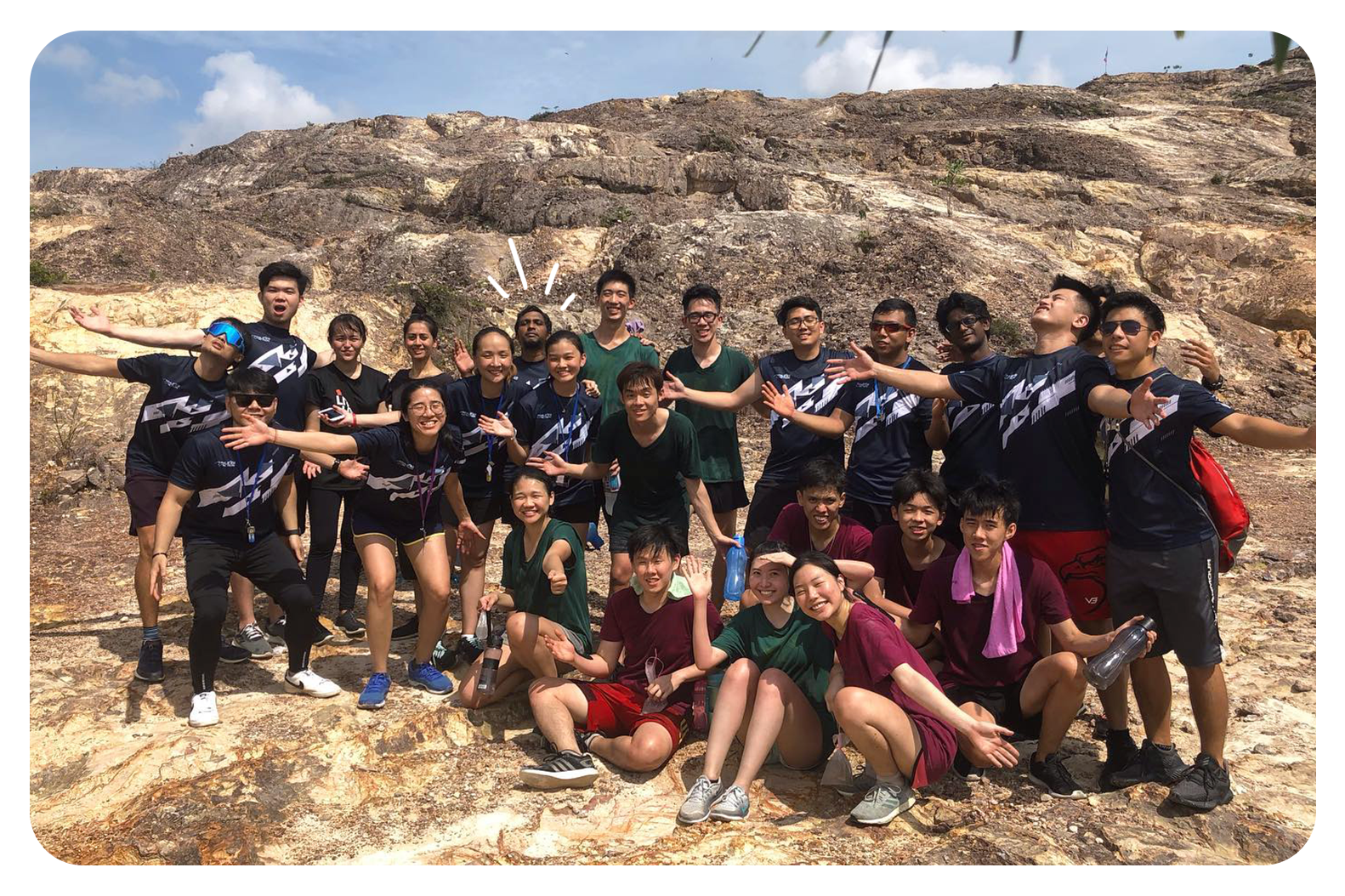
It still befuddles me to think about this experience. Nevertheless, our team certainly gained from the encounter as well, and perhaps God saw something in our newness that could be a blessing to others.
Foolish things are used by God too (1 Corinthians 1:27) — perhaps our foolishness, our naïve willingness to give anything a shot, was of some use to Him and in some way an inspiration to the community.
The following year, a Hong Kong Campus Crusade for Christ staff member also joined us, as he desired to start an AIA ministry there.
He stayed with us for a month to learn how a sports-focused ministry was done, and then came again with other Hong Kong staff members to take part in our 2018 UTC.
Around the time of the 2018 Asian Games in Jakarta, God also put it in our hearts to coach and develop eight AIA ministries in the region and help them be self-sustaining.
Motivated by this vision, we were eager to reach out to any AIA staff who came our way, to understand their needs and desires, and to partner them in fulfilling their goals.
2019 was an even more exciting year where we really got to work, planting seeds in foreign fields and seeing the first shoots begin to grow. For instance, we helped AIA Malaysia set up its first UTC.
Following that, AIA Poland also approached us to ask for help in launching a UTC there.
As far as we were aware, this was the first UTC in Eastern Europe, and subsequently one Moldovan athlete wanted to start a UTC in his home country too.
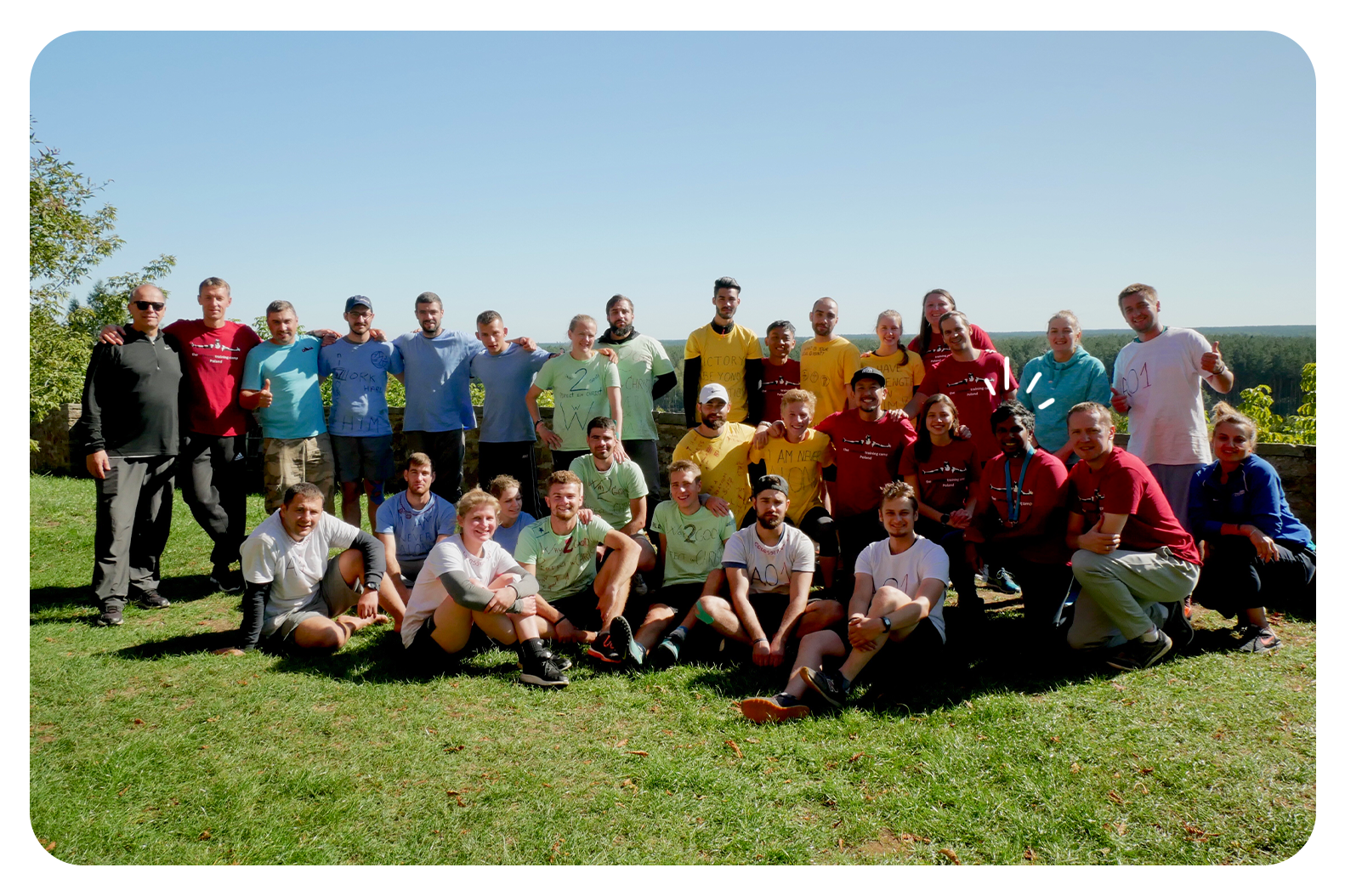
That year, AIA Singapore also had the privilege of conducting the TAA programme in Myanmar.
The Great Commission has always been at the heart of what we do, and while we have strived to be faithful to whoever and whatever was entrusted to us, we knew that ultimately, our work was meant to expand into the greater arena.
Our ministry was not meant to be confined to Singapore; our growth was meant to be shared.
Looking ahead
True to the promise I had made when AIA first began in 2012, I stayed on at the helm for eight years and was privileged to see the ministry grow.
My gift lies in dreaming big and coming up with the wildest ideas, and God used my personality to AIA’s advantage in the early days.
As we partnered God and went as He led, AIA grew from being a three-person discipleship group to a ministry reaching national athletes, impacting other countries, and establishing its presence at regional and global games.
Jia Xian, who was the second staff to join AIA many years ago, never dampened the vision but came alongside it calmly and diligently, putting in the work needed to help it develop into reality.
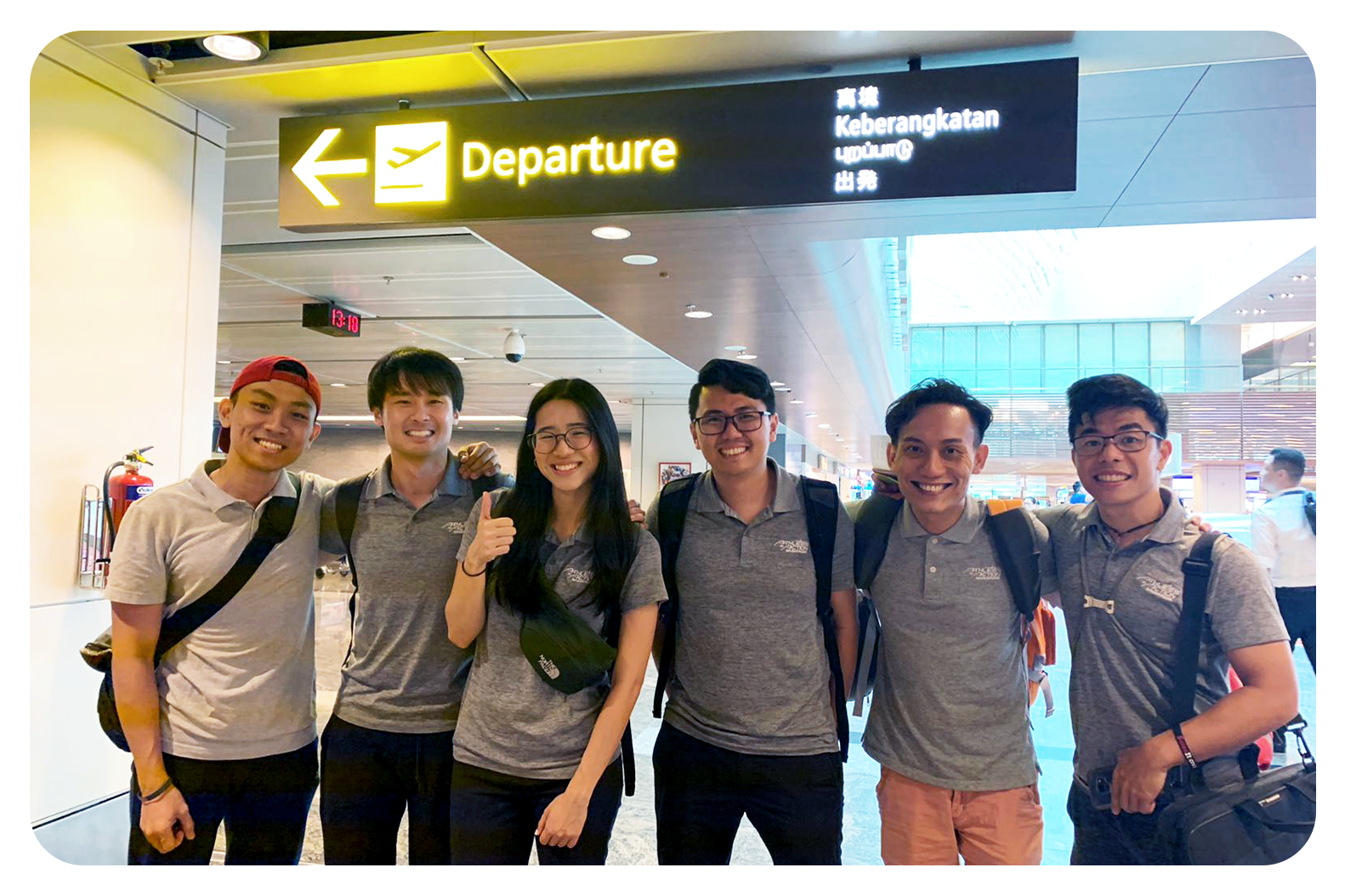
On December 1, 2020, Jia Xian officially took over as the team leader for AIA Singapore. AIA has passed the season of scattering seeds, and it is now Jia Xian’s time to lead the ministry into deeper growth.
There is much potential in seeing sports not just as a tool for ministry’s work, but as a field to which we can minister directly.
It is much easier — and it looks much better on the books — to bring hundreds of people together for a sports outreach, than to identify an athlete in a crowd and journey with him personally.
Yet ministry is not always about the numbers. There is much benefit to sowing deep on good ground, and being patient and faithful where we have been called to water.
God makes it clear that His grace is sufficient for us, and that His power is made perfect in weakness (2 Corinthians 12:9).
God’s sufficiency and grace gives us all the courage to press on despite our shortcomings; we trust that God can use us just as He has made us to be, with our unique personalities, inclinations and weaknesses, to serve the purposes He has specially crafted for us.
All we did was keep showing up for people, staying faithful to what had been entrusted to us, and keeping our eyes on the Holy Spirit’s leading and to the larger goal.
To commemorate their 10th year of ministry, Athletes in Action (AIA) Singapore has published a book, My Game His, Glory, which comprises 10 devotionals and 7 stories of athletes and sports professionals.
This article was adapted from a chapter in the book and has been republished with permission.
My Game, His Glory is available as a complimentary gift with a minimum donation of $50 towards the local and overseas work of AIA. For details, visit cru.sg/AIA10.
To find out more about AIA, you can also get in touch here.
- Is there something that God is asking you to do with the passion, abilities and experiences He has given you? Journey with Him more to discover what it could be!
- What is something you need to trust God for or remain faithful in?
- How have you been living out the Great Commission in your life?


